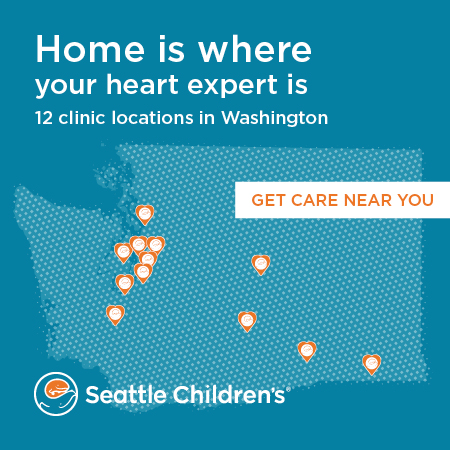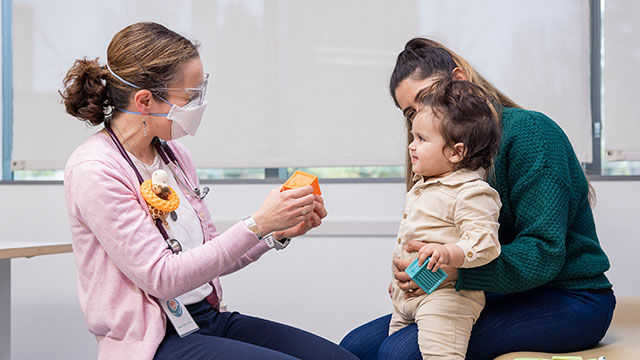Brain Abscess or Spinal Abscess
What is a brain abscess or spinal abscess?
An abscess is a collection of pus caused by an infection. Brain and spinal abscesses rarely happen in children. But when they do, they can cause harm by pressing on brain tissues or blocking the flow of blood to parts of the brain.
In the central nervous system (CNS), an abscess can happen:
- In brain tissue or around the lining of the brain
- In the outer covering of the spinal cord (the epidural space)
- Inside the sac that contains the spinal cord
- On the bones of the spine (vertebrae)
-
What causes brain or spinal abscesses?
Brain abscesses usually are caused by bacteria or fungi that infect part of the brain. The infection causes the area to swell (inflammation). A membrane forms around the infected area. This can help protect your child’s brain by limiting the infection to 1 area. But if the area continues to swell, it can block blood flow or put pressure on parts of the brain.
The main cause of a brain abscess is bacteria from an ear, sinus, mouth or tooth infection. The bacteria travel to the brain through the blood. A brain abscess can also be caused by an infection in the central nervous system, such as meningitis. It may also happen to children who have cyanotic heart disease.
Infections in other parts of the body that spread through the blood can also cause spinal abscesses.
Neurosciences Care at Seattle Children's
What are the symptoms of a brain or spinal abscess?
Some symptoms of a brain or spinal abscess are the same as many other conditions, like headache and fever. Our team has the experience to tell an abscess from other health problems to make sure your child gets the right treatment.
-
Brain abscess symptoms
If your child has a brain abscess, they may have some of these symptoms:
- Headache
- Stiff neck, shoulders or back
- Neck, shoulder or back ache
- Vomiting
- Fever or chills
- Sleepiness, confusion or other changes in thinking
- Changes in vision
- Problems talking
- Problems with walking or other movements
-
Spinal abscess symptoms
Symptoms of a spinal abscess depend on the location of the abscess. In general, they include:
- Weakness
- Tingling, numbness or loss of feeling in any body part
- Loss of bladder or bowel control
- Being unable to pee (pass urine)
- Back or leg pain
- Fever
How is a brain abscess or spinal abscess diagnosed?
Your child's doctor will examine your child to find out if they have problems moving, feeling or thinking that might point to an abcess. In addition, blood tests and can help doctors find out the cause of problems.
Brain abscess diagnosis
If your child's doctor suspects a brain abscess, your child may have:
- A blood test called complete blood count (CBC) to measure the number and size of red and white blood cells
- Test for bacteria in a sample of blood (blood culture)
- of the head
- of the head
- Chest
- (electroencephalogram) to find problems with electrical activity in the brain.
Spinal abscess diagnosis
If your child's doctor suspects a spinal abscess, your child may have:
- of the spine
- of the spine
- Sample of the abscess taken and tested (biopsy) for or
Treating a Brain Abscess or Spinal Abscess
We treat all brain and spinal cord abscesses with very strong medicine. Some children also need surgery.
-
Antibiotics and antifungals
To decide the best medicine for your child, sometimes we do surgery to take a small sample () of the abscess or to drain it. Doctors test the sample to find out what is causing the infection. Then we treat it with the best medicine to kill the specific bacteria () or fungus (antifungals).
-
Surgery options for a brain abscess
Your child may need surgery if their abscess is large, increasing pressure inside their head and causing symptoms.
We offer 2 procedures to drain the pus and reduce the pressure in your child’s head. Your child’s neurosurgeon will talk with you about which option may be best for your child.
Burr hole
First, we find the exact location of the abscess. Then your child’s neurosurgeon:
- Drills a small hole in the skull.
- Inserts a needle in this hole, called a burr hole.
- Makes a small prick in the abscess. This drains the pus.
Craniotomy
If neurosurgeons need direct access to your child’s brain, they do a procedure called a craniotomy. The neurosurgeons:
- Cut and remove a part of the skull (cranium).
- Cut the tough membrane that protects the brain (dura mater).
- Drain the pus using special equipment.
- Close up the skull, using the same piece of bone they removed. Sometimes they use hardware such as micro plates, screws and wires to close your child’s skull.
If the skull bone is infected, neurosurgeons remove it while the infection is treated. Later, they replace it with an artificial material.
-
Surgery for a spinal abscess
Usually, doctors treat a spinal abscess with surgery. This drains the pus and eases pressure on the spinal cord. Your child may need surgery right away if they are having symptoms such as:
- Leg weakness
- Trouble walking
- Problems with bowel or bladder control
Follow-Up Care
After your child receives any urgent or emergency treatment they need, the team at Seattle Children’s plans and provides ongoing care, so your child has the best possible outcome. We evaluate all your child’s health needs and work with you to create a care plan that fits your child and family.
If an abscess harms your child’s brain or spinal cord, we provide treatment and services to meet your child's needs.
Our team is experienced in helping children return to school and other important activities after brain or spinal surgery. We also work with you to find resources in your community.
Why choose Seattle Children's for your child's brain or spinal abscess care?
Seattle Children’s has the skills, experience and special equipment to diagnose and treat your child’s brain or spinal abscess. We care for children and teens from across our region — Washington, Alaska, Montana and Idaho.
- Our neurosurgery team is among the most experienced in the nation. More cases mean greater expertise and a sharper ability to decide if surgery is even needed. That adds up to better outcomes.
- Seattle Children's is the only hospital in the region with round-the-clock, on-site coverage by a pediatric .
- Our Infectious Disease and Virology team is expert at choosing medicines best suited to your child's condition, in the right amount (doses) for growing children.
- If an abscess harms your child's brain or spinal cord, specialists in Rehabilitation Medicine and Neuropsychology provide treatment and services, so your child has the best possible recovery.
-
Support for your whole family
- Having a condition that affects the brain or spinal cord can be scary and stressful for the whole family. During visits, we take time to explain your child’s condition. We help you fully understand your treatment options, so you can choose what is best for your child.
- Our doctors, nurses, child life specialists and social workers help your child and your family through the challenges of their condition. We connect you to community resources and support groups.
- We work with many children and families from around the Northwest and beyond. We can help with financial counseling, schooling, housing, transportation, interpreter services and spiritual care. Read about our services for patients and families.
-
Specialists in caring for kids and teens
- Children don’t react to illness, pain, medicine or surgery in the same way as adults. They need – and deserve – care designed just for them. They need a healthcare team specially trained to understand and meet their needs.
- Our doctors have special training to diagnose and treat children. They are focused on how today’s treatment will affect your child as they develop and become an adult.
- Our experts base their treatment plans on years of experience and the newest research on what is best for children and teens.
- As your child grows, we meet their changing needs, whether they are a youngster going back to school after brain surgery or a teen taking more responsibility for their health.
Contact Us
If you would like an appointment, ask your child’s primary care provider for a referral.
If you have a referral, call 206-987-2016 to make an appointment.
If you have any questions, please contact us at 206-987-2016 or 844-935-3467 (toll free).
Providers, see how to refer a patient.
Paying for Care
Learn about paying for care at Seattle Children’s, including insurance coverage, billing and financial assistance.


